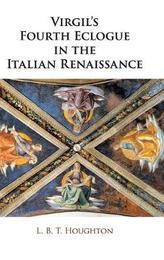
|
Virgil's Fourth Eclogue in the Italian Renaissance
Hardback
Main Details
Description
Virgil's fourth Eclogue is one of the most quoted, adapted and discussed works of classical literature. This study traces the fortunes of Eclogue 4 in the literature and art of the Italian Renaissance. It sheds new light on some of the most canonical works of Western art and literature, as well as introducing a large number of other, lesser-known items, some of which have not appeared in print since their original publication, while others are extant only in manuscript. Individual chapters are devoted to the uses made of the fourth Eclogue in the political panegyric of Medici Florence, the Venetian Republic and the Renaissance papacy, and to religious appropriations of the Virgilian text in the genres of epic and pastoral poetry. The book also investigates the appearance of quotations from the poem in fifteenth- and sixteenth-century fresco cycles representing the prophetic Sibyls in Italian churches.
Author Biography
L. B. T. Houghton teaches Classics at Rugby School and is an Honorary Research Fellow of the Department of Greek and Latin at University College London. With Maria Wyke, he has edited Perceptions of Horace (Cambridge, 2009); with Gesine Manuwald, Neo-Latin Poetry in the British Isles (2012); and with Marco Sgarbi, Virgil and Renaissance Culture (2018).
|